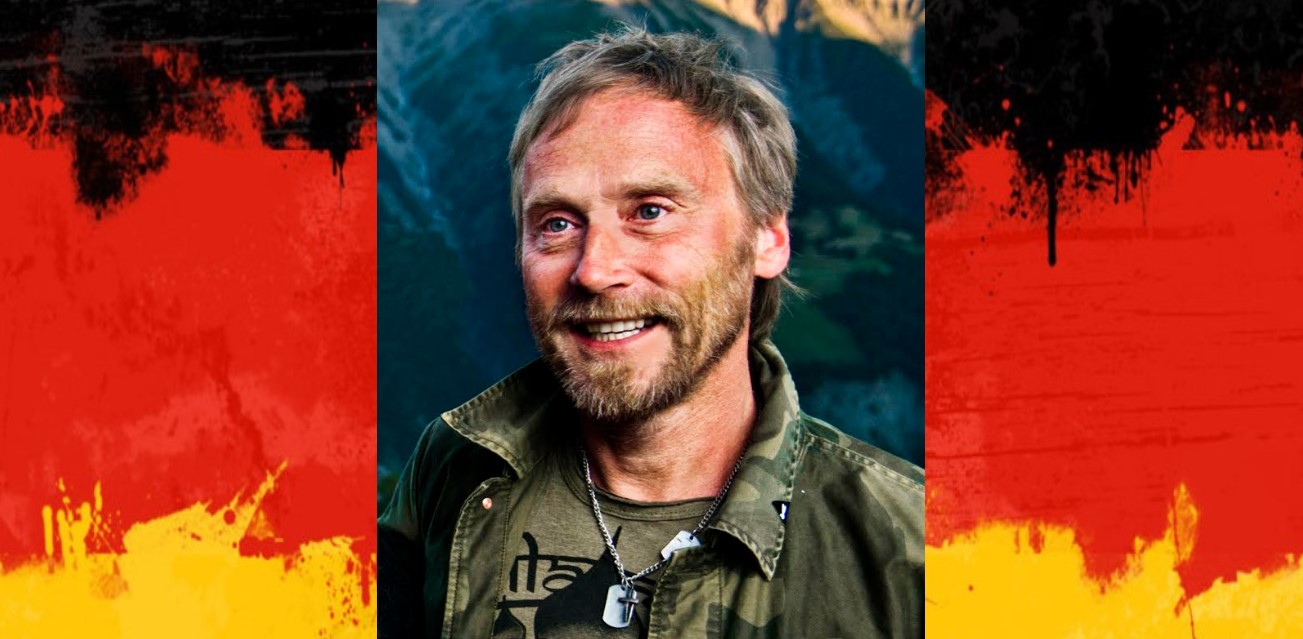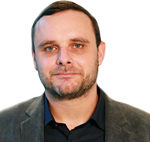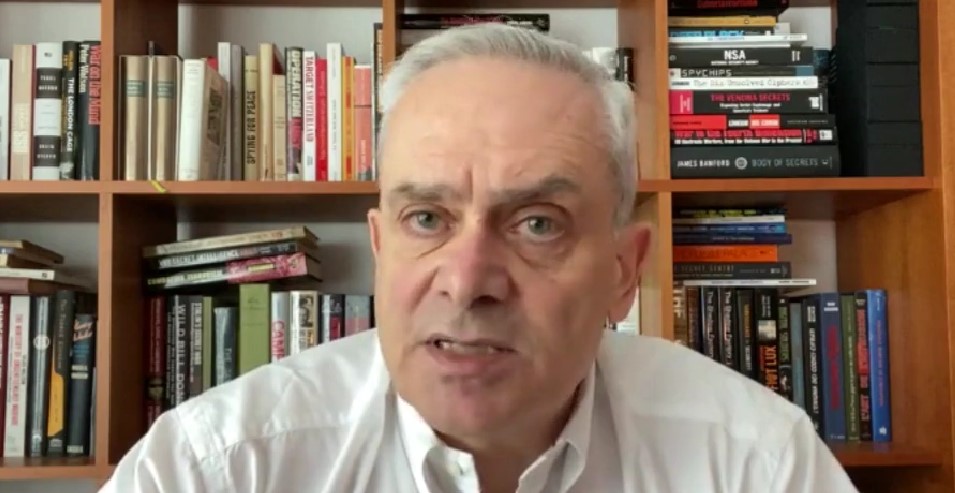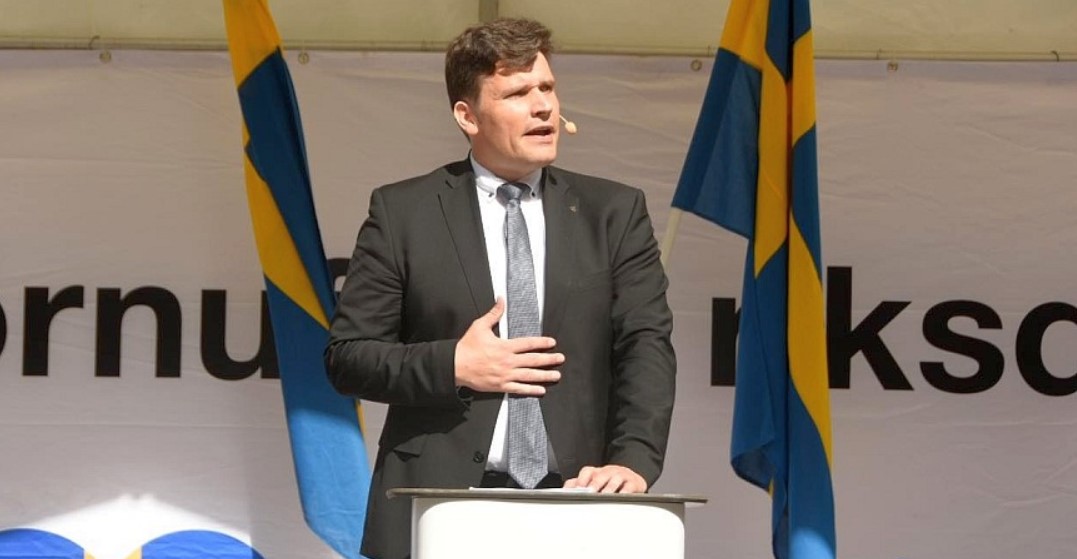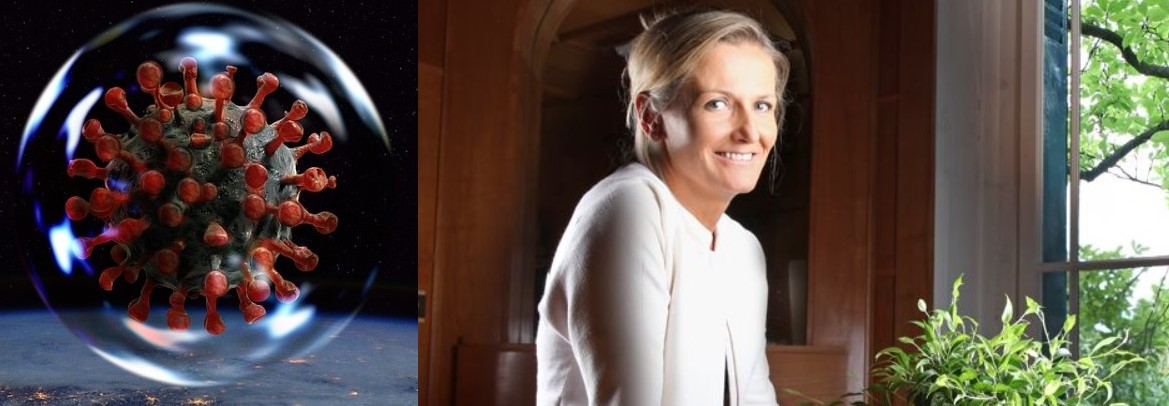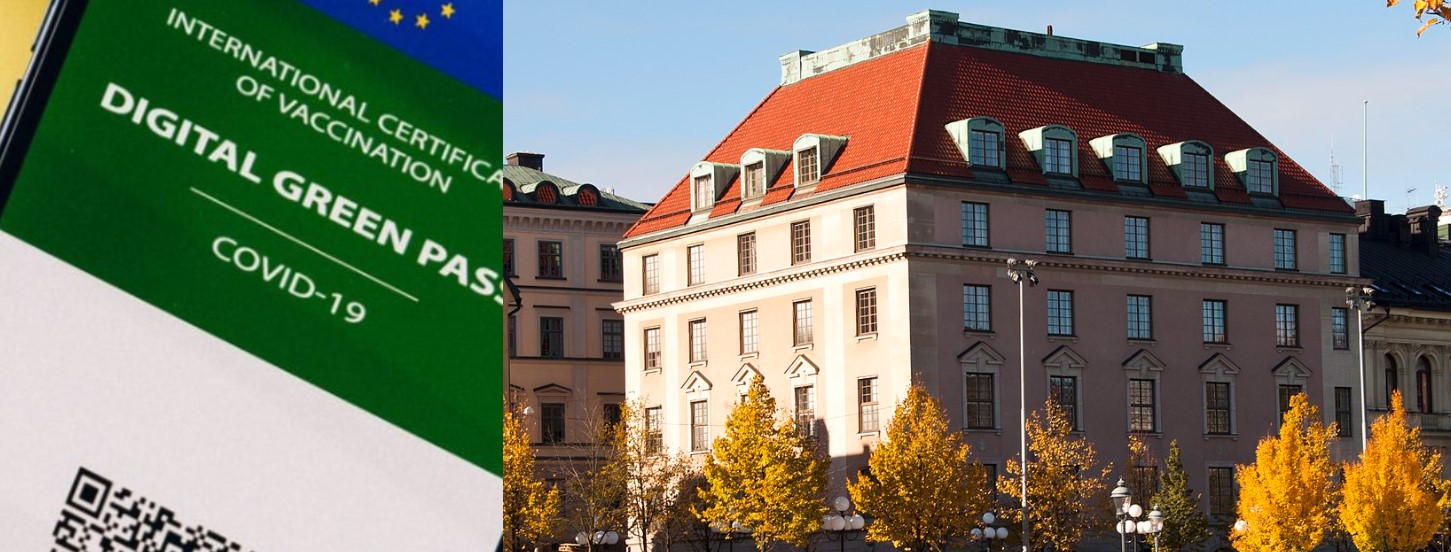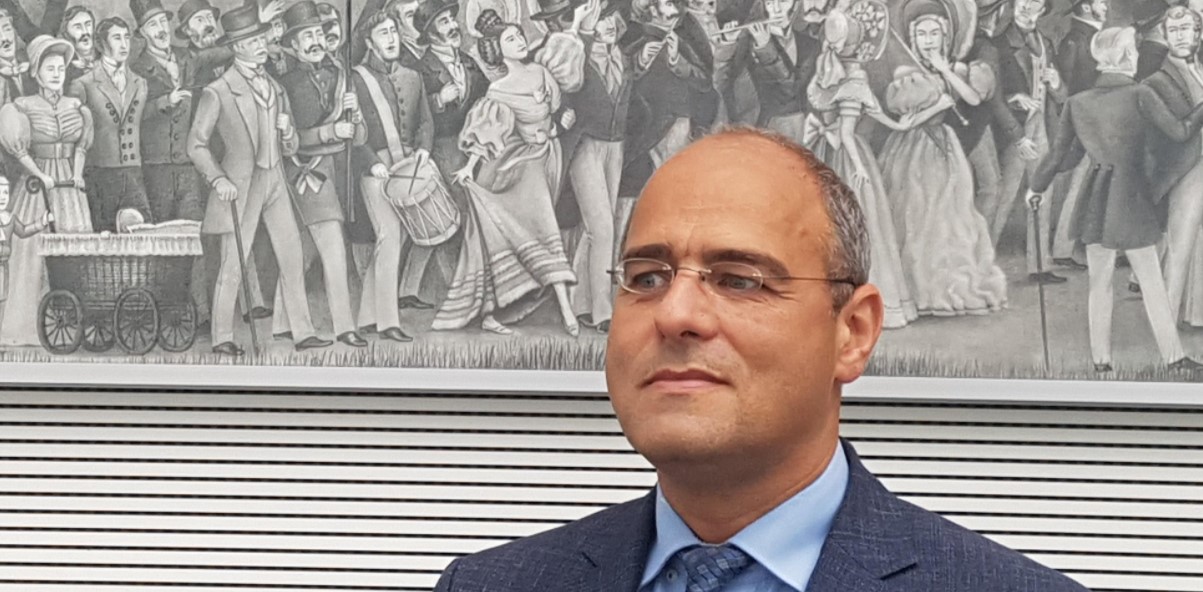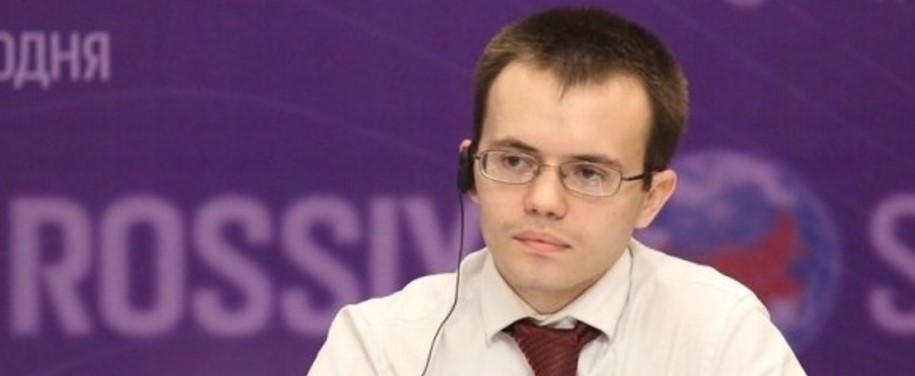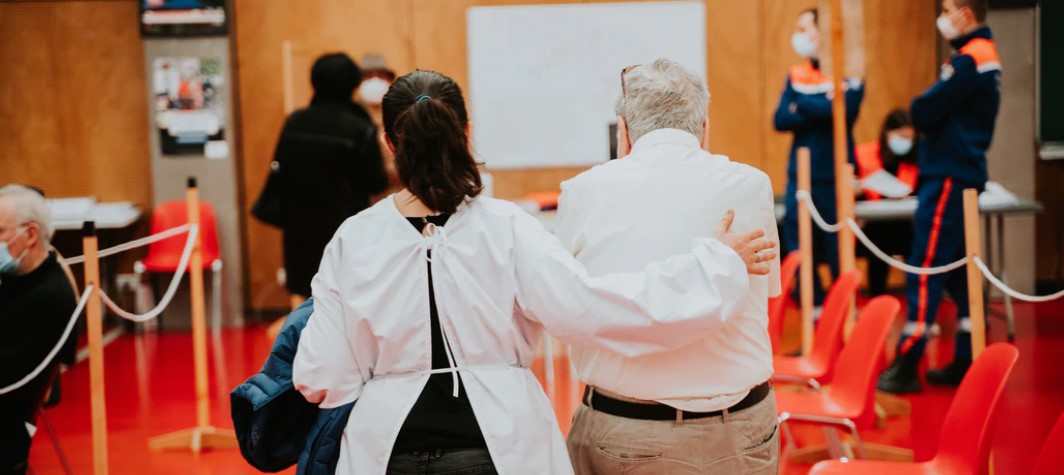Mr. Kunkel, currently one of the main topics in all the media is the so-called “split society” in the whole of Europe, but especially in Germany. As a PR expert, can you explain to us what this actually means?
Kunkel: There are once again today two camps that have completely different ideas of a Germany of the 21st century. One group fanatically supports the course of the Merkel government and its crazy migration policy, while the other group is ever more vigorously defending the sovereignty and cultural identity of Germany. Incidentally, this longing for a home is granted to foreigners. Just think of the inclination of many Syrian refugees preferring to spend their holidays in their homeland to “recover from Germany” as a refugee blogger recently wrote. To which one would like to say: Please allow Germans the same privilege.
In what way?
Kunkel: Germans also have the right to be “themselves” – that is, to live in a community where they do not have to explain themselves constantly and negotiate their existence with immigrants daily. These citizens are serious when they see the new propaganda side by side with North African immigrants as an imposition.
Isn’t what we call a “split” actually the normal diversity of opinion in a democratic community?
Kunkel: I think a “split” means something different. An archaic friend-foe notion has largely supplanted the culture of discourse. Politicians like Johannes Kahrs and Ralf Stegner have made a significant contribution to this, as have officials such as Sawsan Chebli and Aiman Mazyek, who openly pursue anti-German interests.
Sadly, Germans do not have any cultural techniques to counter these fission fungi in human form. Added to this is the government’s increasing persecution of dissidents: some are fired for their political opinions, and social relationships are destroyed. There are now an astonishing array of examples of how the state proceeds to force oppositional or uncomfortable intellectuals to their knees by means of material reprisals. The great root of all wars is generally known to be the offense. I would say that the degree of offense the Germans inflict on each other is scary today and could amount to a civil war or something similar.
Allegedly, the AfD and “the Right” are responsible for this split…
Kunkel: Both camps blame each other for the split, to be exact. I have seen this in conversations with journalists during the provincial election campaigns in the East in recent weeks.
Where does this irreconcilability come from? Has nobody tried to counteract this?
Kunkel: But of course. In 2017 already I had hoped that talks with media representatives could build bridges. Once it was clear that the AfD was not a flash in the pan, but a new people’s party, the mainstream media should have changed their style of reporting.
By that I mean, it should have ended the hostile fictionalization of the AfD, the newspeak and the frame stories such as the one about a refugee who finds 10 000 euros and hands it over to the police. The opposite is the case. The press is reporting in an even more hostile way than before and the extent of fake news is hard to bear.
Sometimes I get the impression that the split you are addressing is wanted by the media and the established parties. They want the escalation, so that Germany can be swept by the iron broom. Fire accelerators seem to me to be the new censorship measures on the Internet. More and more Germans see this as proof that their freedom of expression is being restricted as in a dictatorship. That fuels outrage.
In the eyes of the establishment, these rightly indignant people have been adopting the role of “right-wing populist hater” even more – a vicious circle! How could the AfD and its supporters ever do it right for the ruling parties? Well, by just shutting up and pretending that the illegal opening of the border in 2015 had no effect on German society. And that’s impossible.
Is the topic of immigration essential?
Kunkel: Since immigration has been revealed as a kind of invasion in which specialists for manslaughter, child murder and rape set the tone, the majority of Germans are now deeply disillusioned as far as immigration is concerned. Either one protests or one adapts, it is one of two things.
For example?
Kunkel: I’ll give you a significant example. My wife goes out in the evening with her girlfriends in Berlin only in sneakers. The reason: The ladies believe that they can run faster in the event of a threat. Absurd, but they no longer rely on the police. That was never the case between 2005 and 2009 when we lived in Berlin.
Angela Merkel would now ask your wife why sneakers or sports shoes are a problem…
Kunkel: Because unfortunately she can not choose anymore.
But the fashion industry says that sneakers can be very nice Sunday shoes too…
Kunkel: [laughs] Sure! you can also have “No means No” tattooed on your upper arm for a swimming pool visit. There are some graphic variants of our adaptation to those who sought protection from us.
Speaking of “split”: The wife of a Berlin Senator or a federal minister does not worry about shoes when she goes out…
Kunkel: You might be right.
So the split is not between right and left, but one between the top and ordinary citizens?
Kunkel: I agree with that. The problem of the future will be that people with low income will feel the negative effects of migration in its full severity. So we’re talking about those citizens who do not drive their children to the Waldorf school in a BMW hybrid or electric car. This remains reserved for the left-liberal elite. Those who can afford it, will soon be residing in a guarded “gated community” with like-minded do-gooders who can hide from reality outside their bionade ghetto [Bionades are a German range of non-alcoholic, organic fermented and carbonated beverages]. In my novel “Subs” I described such an enclave in 2011, in which better-off do-gooders reinvent slavery with illegal migrant workers.
It does make a difference whether your child goes to school with the son of a Nigerian diplomat or with Nigerian asylum-seekers…
Kunkel: That’s the point. But the important decisions are made by those whose children go to school with children from diplomats.
After all, you are a “creative artist” – how far has your industry actually moved away from the people in recent decades?
Kunkel: I would say that the link to the population and their problems has weakened. For example, when we look at film funding, it is noticeable that films are promoted that are thematically relevant to the cultural policy agenda of the Merkel government. The dramatization of a refugee’s fate has played a special role for years. Scriptwriters and producers act as the vicarious agents, because this is how they get their hands on running the mine.
They know what “those up there” want. And a Sascha Lobo with his cockscomb hairstyle wants to be invited to the garden festival of the Federal President to get a piece of the cake in the presence of the worst CDU sycophants.
This way of worshiping the powerful has meanwhile degenerated into the modus operandi of the cultural scene. Some have even managed to make their own special genre, ingratiation literature, socially acceptable.
Who do you mean?
Kunkel: The Spiegel-Online blogger Sibylle Berg is an example. In the commercial for her novel GRM – Brainfuck, she uses a 14-year-old colored man as a token. Berg’s PR strategy fits her collection of trite sex-crime stories which look like they’ve all been read by Pulp Master 20 years ago. Berg, who by the way lives in Zurich, the city with the highest quality of life in Europe, does not even know the milieu that she writes about. Her commercial is therefore at best a marketing gimmick. Basically, she should call herself Sibylle Fake, as that would at least show a sense of self-irony. She should actually be Sibylle Black and the black dwarves, that’s even better. But this person is unfortunately dead serious about her “fight against the right”.
In what way?
Kunkel: Well, do you remember this encouragement letter to the Antifa that Berg published in Der Spiegel a few years ago? It is just one example of the initially implacable friend-foe thinking that makes a normal exchange of ideas impossible. I believe state artists like Berg are consciously accepting the division of our society. And we had something like that in Germany before.
When was that?
Kunkel: Well, the National Socialist entertainment industry worked exactly according to this formula. In reality, the Babelsberg films are all propaganda infusions, which is why, for example, the joke piece Jud Süß was rightly declared a “reserved film”. This is far more perfidious than Berg’s film, but the intentions behind it are similar. Many want to become state artists again today …
You mentioned Sascha Lobo…
Kunkel: A splendid specimen of someone totally disconnected from the people, the new cultural functionaries …
Is the colorful cockscomb really cheeky and original?
Kunkel: No, that’s anachronistic. In the late 1970s, when I played in a Frankfurt punk band myself, such hairstyles were still an expression of dissent and no-future. Since one was sometimes mobbed by truck drivers, the cockscomb was, so to speak, always a ticket to a spontaneous fight. The failed advertiser Sascha Lobo carries a quasi-museum piece of hair on his head and probably does not even realize how ridiculous he makes it look. On the other hand, don’t speak ill of the dead.
Other people: German comedian Jan Böhmermann. He also describes himself as an arts professional, supports human trafficers, mass immigration and Angela Merkel. What do you have to do to keep people like Böhmermann, Joko Winterscheidt and Klaas Heufer circulating?
Kunkel: These guys are all globalization fans, but otherwise pretty much do not care if it just fills up their pockets. Just take a look at the Joko Facebook page. There he gushes about saving the climate and at the same time he constantly jets around the world. He draws social capital from climate change, and that’s it. He probably does not notice the discrepancy between his utterances and his lifestyle. But again: this behavior is reminiscent of that of the National Socialist state artists who supported the regime to the bitter end.
What do you mean?
Kunkel: Then as now, the political leadership determines the canon of values, which every arts professional who is interested in a career learns in no time. Those who internalize it, do so not least because they expect it to provide them with benefits in terms of money, scholarships, subsidies and social advancement.
This is quite comparable to the behavior of those Nazi art officials who sank after 1945 into complete insignificance. Just think of Adolf Ziegler or Gert Hippler. Of course, Heinz Rühmann is the best example of such a career. He still filmed his comedies for the Nazis in Berlin in 1944 when the city was regularly being bombed to ruins. For this he received millions of Reichsmarks from the Reich Chamber of Film.
There are testimonies from Rühmann’s team, that in the evening Heinz cruised – champagne in hand – in an open motorboat on the Wannsee when you could hear the Soviet artillery in the distance.
Was Heinz Rühmann the Jan Böhmermann of the 1930s and 1940s?
Kunkel: Now that you draw the comparison, I cannot deny it completely. After all, even someone who toes the party line like Böhmermann should use his comedic talent to the bitter end – for good pay, of course – and then claim that he knew nothing about it.
Böhmermann would then probably be successful in an AfD-governed Germany?
Kunkel: There’s no doubt about his exceptional talent. This sort of folk actor resembles the chameleon, it always comes through somehow. For example, if you ask Böhmermann in 20 years why he called for donations for the tug captain Carola Rackete in 2019, perhaps his answer would be: To prevent further crimes of this apparently severely traumatized daughter of an armaments expert.
Conversely, the new system would allow a fictional cultural director Böhmermann to reinterpret his now inglorious past as an “embedded comedian” and fan-boy of the perjurer Merkel …But let’s leave it at that, otherwise I’ll get carried away!
What happens to art professionals who explicitly do not want to submit to this trend?
Kunkel: Life becomes difficult overnight. Even as a well-known writer one has to be able to publish. This obstruction of existence plays into all areas of life. It is almost impossible for an “outcast” art professional to rent an apartment in a city like Berlin. Landlords are also googling their tenants nowadays, and once they get stigmatized by the media, things get tough. Anyone who abandons the consensus has to bear with the consequences. This too is an example of the existing social division.
They were expelled as well…
Kunkel: Halfway, I mean, compared to Pirincci I’m almost still popular with the media. [Akif Pirinçci is a Turkish-born German writer who is best known internationally for his novel Felidae. His statements on feminism, opposition to immigration, and description of Germany as a “Muslim garbage dump” have provoked controversy in Germany and throughout Europe. Ed.]
The whole thing has good sides too. These days I write with much more enjoyment than before and exactly what I want. I no longer have to endure all the advice of the leftist pals who always wanted to protect me from myself. By the way, I used to be called by the head of the Literary Colloquium Berlin a prime example of a “good leftist author” because of my “socio-critical writing”.
I’ve never made a secret of the milieu from my youth of US G.I.s, drug addicts and decrepit whore ghosts who went shopping at the IAA. Leftist cultural bobos thought it was great. They did not get that at the core of my work there was always self-assertion. I have never changed, but the cultural industry has. A German writer who sees in writing an act of self-assertion is automatically a right-winger today. This automatism also promotes the social division you mentioned.
Almost all the important decisions of the last 20 years have been made against the will of the majority of people: EURO currency introduction, Lisbon treaties, NATO operations, opening of borders in 2015, Russia sanctions… How does a political system manage to keep this up?
Kunkel: The examples you mention are undoubtedly the triggers of social division. I am sure that someday this will be seen in a historical review.
In another European country, people would never have accepted such a policy. In France car tires would have been burned…
Kunkel: That’s right. And that is exactly why Germany is so perfect for the great multi-ethnic experiment that [German-American political scientist] Yascha Mounk spoke about – one could say, because of the decades-long re-education of the people. Because the Germans have learned that their politicians always decide to the detriment of the people. Resistance was therefore unlikely in 2015. Imagine somebody telling the Frenchmen or the Italians that they were planning to change their people completely, to disperse it into a migrant mass, to “thin them out” genetically, as Joschka Fischer once boorishly said.
No, not only car tires would burn. The apathy of the German people, who are known to despise their peers, is even more frightening.
Do you live in Switzerland?
Kunkel: Yes, since 2009.
In Switzerland, many decisions are made through the instrument of plebiscite – that is, through direct democracy. Wouldn’t it be an instrument for Germany, at least to mitigate the social divide?
Kunkel: In Switzerland, the plebiscite has hitherto helped prevent a division of society. The political camps still pay tribute to each other, despite the greatest differences of opinion. I believe that direct democracy would be the appropriate means to finally heal this divided German people. The people would feel responsible and not bossed around, it would make them trust in the politicians again.
Which is probably the reason why all established parties in Germany are against binding referendums.
Kunkel: [laughs] I would say they are not ready yet, they have not tasted enough defeats yet. Only when the CDU nationwide falls below 20 percent, would most understand that the routine betrayal of their own people is no longer worthwhile.
There would probably be hell to pay for the fact that the living conditions of the German people have worsened steadily since the fall of the Berlin Wall, and Germans, for their part, will finally refuse to pay for everything. The fight for the introduction of the plebiscite should be worthwhile to remedy the deep rift in our society and to secure social peace for at least the next twenty or thirty years.





